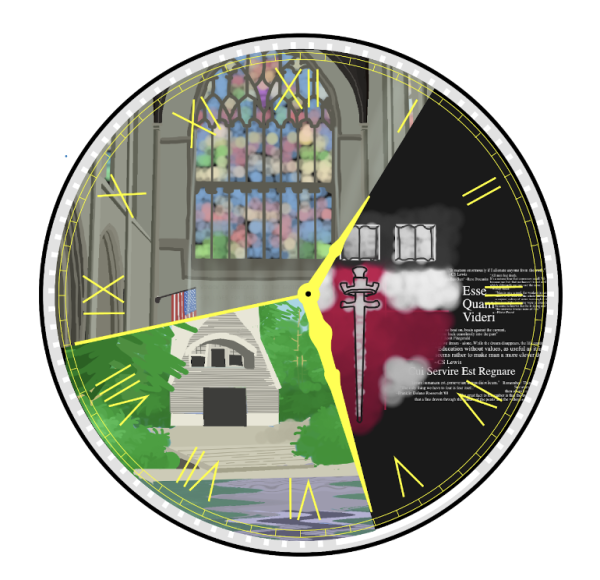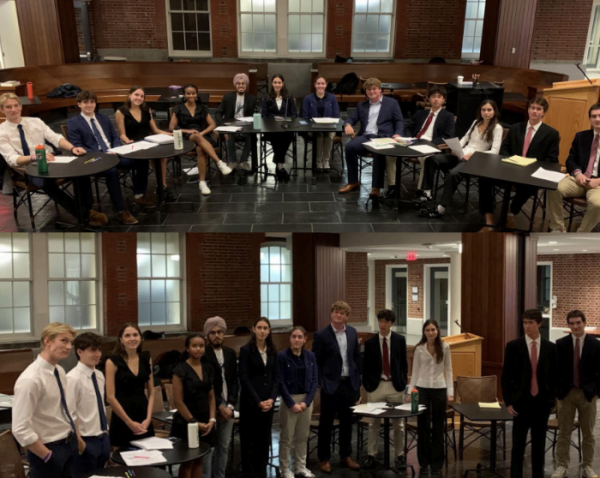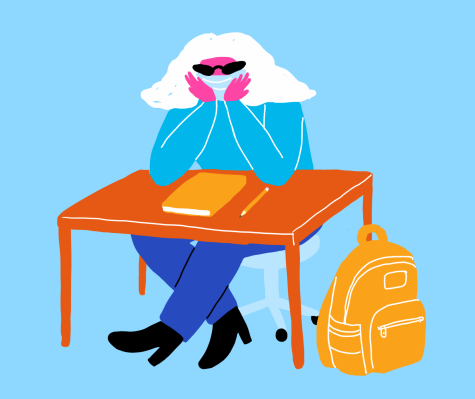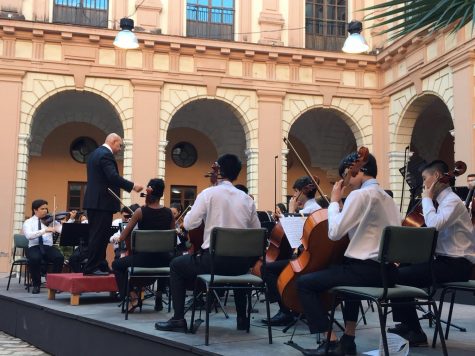New handbook readdresses Intervis, highlights LGBT students
Once students dispersed for summer, life on the Circle did not stop evolving. Top of the list of new changes? A student-proposed, faculty-approved overhaul of the Intervisitation policy with the goal of fostering stronger inter-gender friendships, and new language in the student-parent handbook that more explicitly recognizes LGBTQ students.
The most obvious alterations to student life happened in the handbook’s section about Intervisitation, a time when students can visit the rooms the opposite sex. In the 2015-16 handbook, “Intervis” formerly ran from 7:15pm until study hall every weeknight while on Saturdays, the Students Activities Committee announced Intervis in a specific dorm.
However, the 2016-2017 handbook states that Fifth and Sixth Formers can request Intervisitation during study hall and faculty members may grant Intervisitation to students present in the dorm on Saturdays. Autumn Johnson ‘19 commented that these changes might help “bridge the gap between genders,” a vital step in the march towards a fully inclusive community.
The changed rules were the result of hard work from a dedicated group of students. At a February Diversity & Inclusion Task Force (D&I) meeting, the topic of healthy relationships between opposite sex students was discussed. D&I member Marco McGavick ’17 described a primary concern, saying, “There seemed to be a distinct lack of communication between students and teachers on the topic of gender relationships.” Jay Montima ’18 extended this sentiment: “Groton isn’t a place that looks to foster relationships.”
After further communication between faculty and the Task Force, a group formed with the common goal of creating and presenting a proposal that addressed the strained inter-gender culture. “We thought the most concrete change the school could make was one in policy,” explained Task Force member Zizi Kendall ’17. The group presented to faculty and the administration an edited version of the 2015-16 Intervisitation rule set. “The ultimate goal is to have students use Intervis more,” said Zizi.
“We wanted Intervis to be reliable and effective,” added Marco, another member of the group that created the proposal. He believes that the new system will “normalize” inter-gender relationships, but “most important is the precedent that this ‘new’ Intervis proposal has set” for administration responding to student concerns. Mr. Goodrich seconded this hope saying, “It’s an encouraging, healthy sign that the administration has sought to make some changes. I hope that the students will, in turn, meet that compromise thoughtfully so that Intervis works.” And while Elizabeth Girian ‘20 felt similarly positive about the adjustment, she speculated about the potential negative side effects—including less effective study hall hours, increased time commitment for faculty, and leeway for students to engage in prohibited activities.
Near the end of spring term, rumors circulated about changes to the “doors open/lights on” rule. To the disappointment of some students, however, Dean Mike O’Donnell dispelled this rumor, indicating there never was a proposal to change that rule. He also clarified that the areas governed by Intervis rules, described as “residential areas” in the new handbook, were “dorm rooms, dorm corridors, and the inner common rooms of Lower School dorms,” leaving Upper School common rooms and Lower School outer common rooms as free spaces for any gender outside of Intervis. Unlike the old handbook, the new handbook takes the Health Center off the list of open spaces. “Visits with students in the Health Center are really up to the discretion of the medical staff on duty,” Mr. O’Donnell said.
Embedded within the new Intervis language is also language more explicitly addressing the LGBTQ community at Groton. Previously, the handbook read, “The school has equal expectations for students regardless of their sexual orientation.” Now, however, there is a new section dedicated to emphasizing the need for inclusion of all students regardless of sexual orientation or gender identity. In addition, the handbook makes clear the school’s zero tolerance policy of sexually intimate behavior during study hall, “whether students are of the opposite or same sex.”
Mr. Choate acknowledged this effort: “We want an environment that in no ways discriminates against any member of the community because of their skin color, religion, gender (by birth or by choice) or country of origin.” Max Solomon ’19 added, “I am proud of the school for doing something about this issue that is really prevalent right now.”
The heads of the Gender Sexuality Alliance were pleased with the texts, but remained realistic about their impact. “Rules and guidelines in and of themselves do not beget cultural changes within the student body—cultural changes that are necessary to fully integrate LGBT students with the rest of the school,” said Charlie Hawkings ‘17, one of the GSA heads.
He added that, nevertheless, “it is an important step in the ever-necessary process of supporting Groton’s LGBT students.” The changes to Intervisitation policy and addition of more inclusive LGBT texts both represent the administration’s effort to listen and respond to student concerns.

Lily Cratsley '19 is very excited to step into the role of Editor-in-Chief of the Circle Voice. Since fourth form she has been a consistent contributor, writing for...








